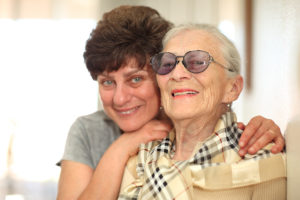You can’t always be there. But we can.
Confronting Your Own Emotions after an Alzheimer’s Disease Diagnosis

Zika Virus
September 1, 2016
6 Reasons Seniors Should Eat More Whole Grains
September 12, 2016Confronting Your Own Emotions after an Alzheimer’s Disease Diagnosis
Elderly Care Northridge CA
Being a family caregiver for an elderly adult is always challenging, but if your elderly aging parent has been diagnosed with Alzheimer’s disease, you are likely to face even more demands and challenges. As their family caregiver you want to make sure that they get the treatment and care that they need in order to manage their disease and stay as healthy and safe as possible as they progress through this condition. As their adult child you love them and want to know that they are happy, comfortable, and living the quality of life that they desire and deserve. Trying to balance both issues, while also knowing that this condition will mean the need for far more dedication and commitment of your time, energy, effort, and resources throughout their later years, can be extremely emotional. Confronting these emotions and working through them is a critical part of ensuring that you can be the best possible caregiver for your elderly parent.
September is Alzheimer’s Month. During this month, take the time to ensure that you have honest and openly confronted your emotions regarding your parent’s diagnosis so that you can work through them in a way that is healthy and beneficial.
Use these tips to help you be honest with yourself and those around you about your emotions after an Alzheimer’s disease diagnosis for your elderly parent:
• Allow yourself to feel. One of the greatest challenges that you are likely to face when confronting your emotions after your parent is diagnosed with Alzheimer’s disease is being able to feel those emotions at all. It is normal for you to immediately go into “caregiver mode” and start thinking about how you are going to care for your parent during this disease. Instead, give yourself permission to actually feel your emotions. Allow yourself time to think not about your care responsibilities, but how you feel about this situation as your parent’s child.
• Work through them individually. The reality is that you are going to experience a wide variety of emotions after your parent is diagnosed with Alzheimer’s disease. These may be complex and even contradict each other at times. Be willing to confront and work through each of them individually so that you can address them in the best ways possible. For example, you might feel afraid of what your parent is going to experience, motivated to give them the best quality of life possible, guilty for experiences that you have not had together, and worried about how much time and effort this care is going to require all at the same time.
• Talk about them. Caring for an elderly adult with Alzheimer’s disease is not something that you should attempt to do on your own, and this starts at the very beginning of the journey. When it is time for you to confront your feelings and start to work through them, do not try to do it on your own. Instead, rely on your partner, your friends, your siblings, and even a caregiver support group to give you the encouragement, support, and advice that you need to help you through.


